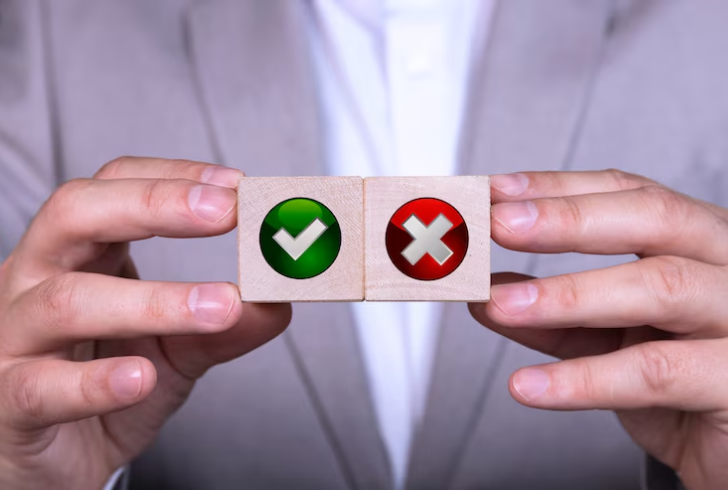
What is Equity in Business and How to Calculate It?

Think of your business as a dynamic project. You start it using your own money and resources. As your business expands, you might seek additional help, such as a loan from a bank or an investment from an investor. These external contributions add value to your business but also come with certain obligations.
This is where understanding what is equity in business comes in. It represents the portion of the business that genuinely belongs to you after considering all loans and investments that have supported its growth.
What is Equity in Business?
In simpler terms, business equity is the leftover value of a company after settling all its debts. It represents the ownership stake of shareholders or investors in the business. Let’s assume selling off all your company’s assets (clearing out the kitchen) and paying back all your loans (returning the fancy oven). The remaining amount (the delicious pie itself) is your business equity.
Why is Understanding Business Equity Important?

Freepik | A high business equity signals a robust company with excellent returns on investment.
Having a handle on your business equity is crucial for several reasons:
- Measures Success and Stability: A high business equity indicates a healthy company with a good return on investment. It reflects your ability to generate profit and cover your debts.
- Supports Growth: Understanding your equity position helps you make informed decisions about raising more funds. You can choose between issuing new shares (giving away slices of your pie) or taking on debt (borrowing more ingredients).
- Investor Value: Investors are drawn to businesses with strong equity. It signals a lower risk and the potential for a higher return on their investment.
Calculating Business Equity
Calculating your business equity is a straightforward process. It all boils down to a simple equation:
Business Equity = Total Assets – Total Liabilities
- Total Assets: Everything your company owns that has value, like property, equipment, inventory, and cash.
- Total Liabilities: Everything your company owes, including loans, accounts payable, taxes, and salaries.
Finding the Numbers

Freepik | A company financial statement captures a moment in your company’s financial journey, revealing its current health.
You can find the figures you need to calculate your business equity in your company’s balance sheet. This financial statement provides a snapshot of your company’s financial health at a specific time.
Example-
Let’s say you run a company called “TechStar,” a manufacturer of innovative gadgets. Here’s how to calculate their business equity:
Total Assets:
- Inventory: $125,000
- Machinery & Equipment: $45,000
- Cash & Cash Equivalents: $9,500
- Accounts Receivable: $55,000
- Total Assets for TechStar: $234,500
Total Liabilities:
- Accounts Payable: $65,000
- Total Debt: $35,000
- Lease Obligations: $15,000
- Deferred Revenue: $75,000
- Total Liabilities for TechStar: $190,000
Now, let’s plug these numbers into the formula:
TechStar’s Business Equity = $234,500 (Total Assets) – $190,000 (Total Liabilities) = $44,500
So, TechStar’s business equity is $44,500. This indicates that after settling all their debts, the company retains a significant ownership stake in its assets.
Positive vs. Negative Equity

Freepik | vadi_fuoco | Positive business equity shows financial strength, while negative equity doesn’t mean failure but needs attention.
Positive business equity reflects financial strength, while a negative equity doesn’t necessarily indicate failure but warrants attention. It can occur during periods of high investment, such as when a company purchases expensive new equipment. As long as the company is generating enough revenue to cover its debts in the long run, a temporary negative equity might be manageable.
Understanding what is equity in business empowers you to make informed financial decisions for your company. It helps you assess your financial health, attract investors, and plan for future growth. By monitoring your equity position, you can ensure your slice of the pie remains substantial and delicious.
More in Business
-
`
Cowboy Superstitions and Traditions That Might Surprise You
Picture this: the chute clangs open, dust plumes, and all eyes track a cowboy mid-stride. But what the crowd doesn’t see...
July 22, 2025 -
`
What’s Changing for Student Loans After Trump’s New Spending Bill?
The passing of President Donald Trump’s latest spending bill is shaking up more than just tax brackets and business deductions—it’s poised...
July 16, 2025 -
`
Why Big Tech Is Divided on the Future of Artificial General Intelligence
Fifteen years ago, the founders of DeepMind—Sir Demis Hassabis, Mustafa Suleyman, and Shane Legg—set a bold goal: “Build the world’s first...
July 1, 2025 -
`
Planning a Wedding? These Money-Saving Tips Actually Work
Weddings are meant to be memorable, not financially draining. But for many couples, the cost of tying the knot often brings...
June 24, 2025 -
`
Did MrBeast Really Borrow Money From His Mother for His Wedding?
YouTube star Jimmy Donaldson, widely known as MrBeast, sparked surprise when he shared a personal update on X. Despite leading the...
June 17, 2025 -
`
How Smart Technology Is Changing the Way We Travel
Technology has reshaped nearly every part of modern life, and travel is no exception. From how we plan trips to how...
June 12, 2025 -
`
Why Some Tech CEOs Are Replacing Themselves With AI Avatars
In a move that signals a shift in how corporate communication is handled, major tech CEOs are beginning to hand the...
June 3, 2025 -
`
Is Innovation Dead in American Pop Culture?
Has something changed in the way we engage with American pop culture? Scroll through your favorite streaming service, tune into the...
May 27, 2025 -
`
7 Key Steps to Start a Profitable Digital Products Business
Starting a digital products business offers an exciting opportunity to turn your skills and knowledge into a revenue-generating venture. Whether you’re...
May 20, 2025














You must be logged in to post a comment Login